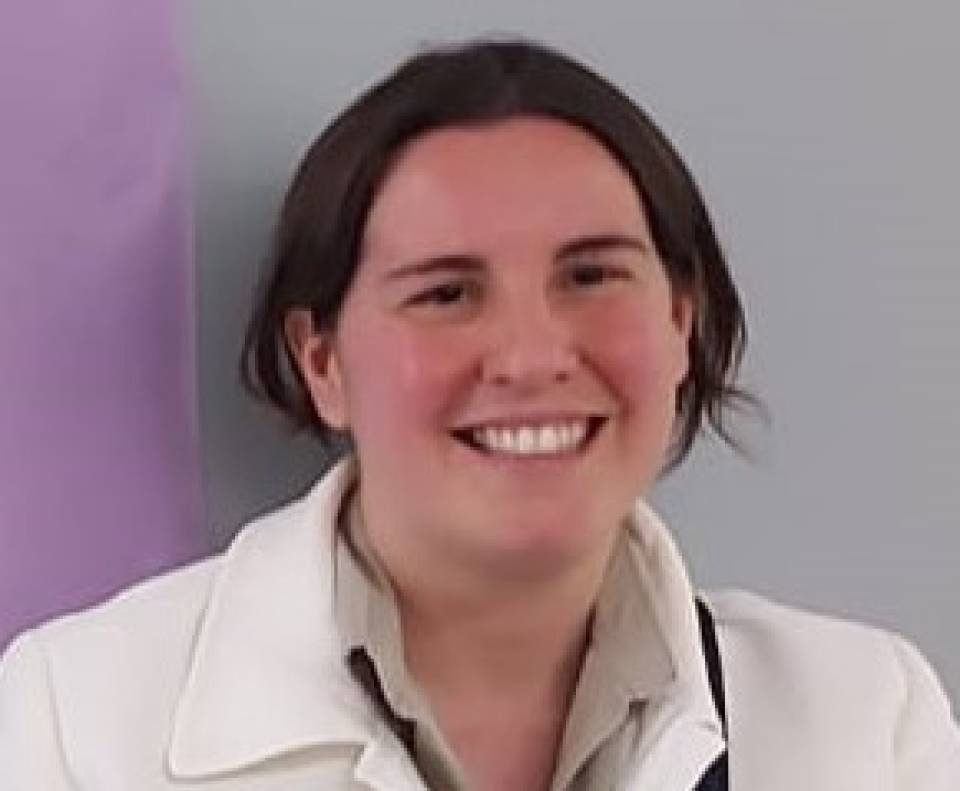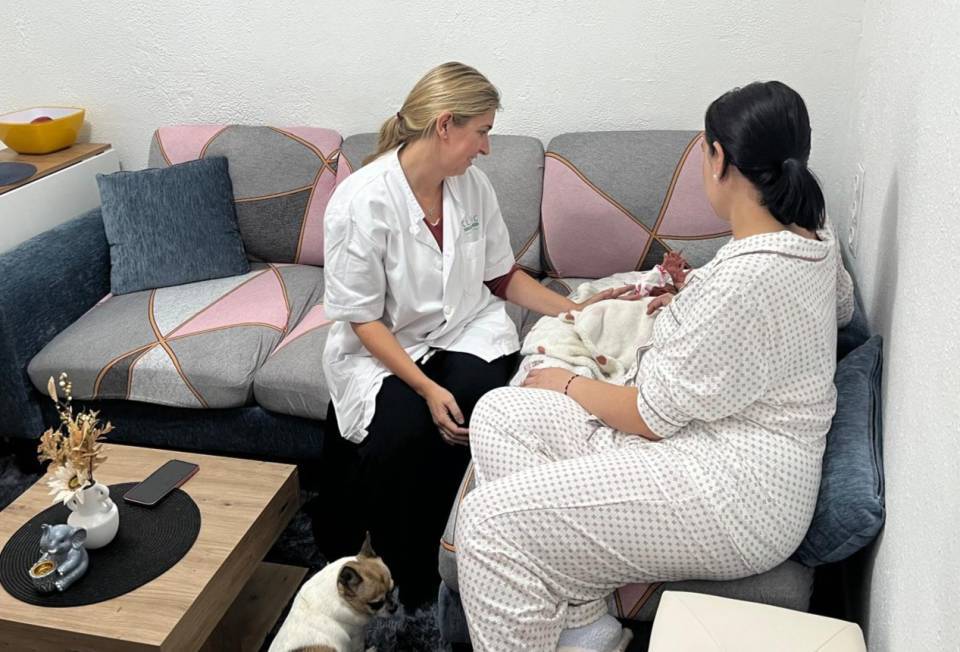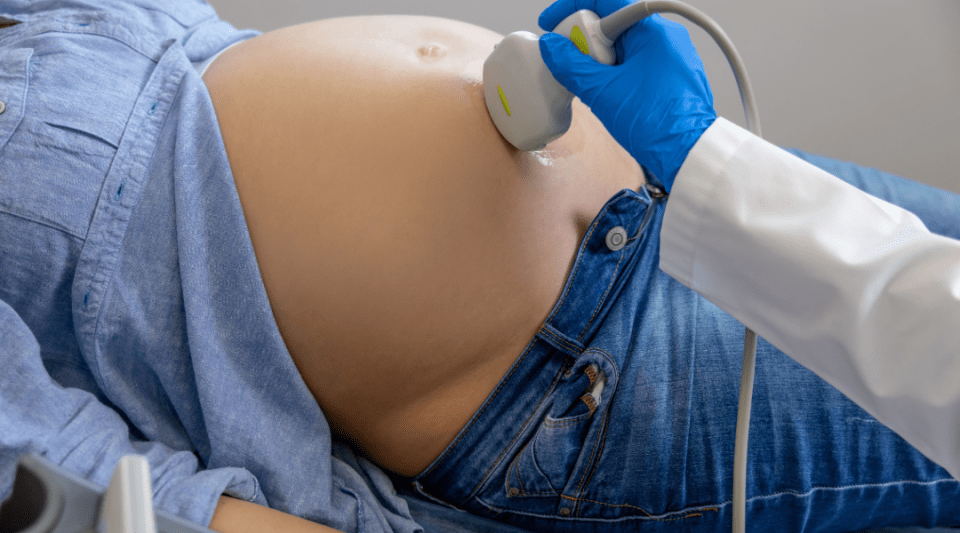Treatment of Postnatal Depression
The treatment of postnatal depression requires an intervention by a multidisciplinary team specialised in the design and application of an individualised plan, based on the scientific evidence and on the needs of the mother. In order to carry out these treatments, specific tools have been developed that enable this intensive and multidisciplinary plan to be applied in a place where the mother and her baby goes in order to carry out the treatment plan.
Mother-Baby Day Hospital
Our country has the CLINIC-BCN Mother-Baby Day Hospital from Hospital Clínic de Barcelona, inaugurated in 2018. It is a partial hospitalisation service where the mothers with moderate-severe postnatal depression go with their baby. They receive a multidisciplinary and intensive treatment, specific interventions to promote bonding, maternal care, and breastfeeding, together with psycho-pharmacological treatment. Furthermore, psycho-educational actions are carried out about the illness and the prevention of future episodes.
Mother-Baby Units
International guidelines recommend the creation of Mother-Baby Hospital Units for cases of more serious episodes, especially those with psychotic symptoms or a suicide risk, and that the mother is admitted with her baby, whenever possible. Currently, there are no other Mother-Baby Hospital Units in Spain.
Non-pharmacological treatment
The psychological therapy techniques that have been shown to be effective for the treatment of PND are cognitive-behavioural therapy (CBT) and interpersonal therapy.
The psychological cognitive-behavioural therapy is the one most used for the treatment of PND. It can be carried out individually as well as in group. This type of therapy is focused on the present, on the current problems that the mother has, in the establishment of specific objectives, and is based on learning techniques that are practiced routinely, and that help to achieve the treatment objectives. This includes:

Increase social activities and self-care, as well as the time dedicated to oneself.

Implement relaxation or emotional regulation techniques in times of stress.

Train assertivity, that is to say, the interpersonal ability that helps to defend the wishes and opinions and respect those of others.

Do something about negative thoughts about yourself, motherhood, or relationships with the newborn baby.
Pharmacological treatment

The management and treatment of mental illnesses during pregnancy and lactation can be a complex clinical situation. There are data accumulated during the last 30 years that suggest the antidepressants in general and the Serotonin Reuptake Inhibitors (SSRIs), which are of first choice in postnatal depression, can be used safely during breastfeeding. For starting or maintaining any treatment during pregnancy and lactation, a risk and benefit assessment must be made both on the taking of the psychotic drug and of the effects of the untreated maternal illness, in this case the depression.
Interpersonal therapy is based on action on the interpersonal situation of the patient in four possible areas: interpersonal conflicts, which could be with relatives, with the partner, in the workplace; the role transition, which refers to the changes in personal situations, like those in the case of motherhood; the grief situation; and interpersonal deficiencies.
Therapies have also been designed that include acting on mother-baby bonding.
Pharmacological treatment and breastfeeding
Electroconvulsive therapy (ECT)

Electroconvulsive therapy is an effective and safe treatment in those cases of severe depression (high inhibition, life threatening, melancholy, psychotic symptoms) or resistance to the pharmacological treatment. ECT can be carried out during the postnatal period with anaesthetics compatible with breastfeeding. It is also a treatment that should be taken into account in some cases of severe depression during pregnancy.
ECT can be carried out during the postnatal period with anaesthetics compatible with breastfeeding. Although less frequently, it is also a valuable treatment in some cases of severe depression during pregnancy.
New treatments
Currently, there are two drugs specifically indicated to treat Postnatal Depression approved by the US Drug Regulatory Agency (FDA): brexanolone and, more recently, zuranolone.

Brexanolone, an intravenous formulation of allopregnanolone, rapidly decreases symptoms of moderate-severe postnatal depression, compared to placebo.
One of the main properties of this treatment is its speed of action, with improvement being seen 48-60 hours after administration. The treatment, which is applied intravenously and requires hospitalisation of the patient, could be a future therapeutic option to significantly reduce the duration of postnatal depression. The drawbacks are cost, intravenous administration and hospitalisation. Brexanolone has not yet been approved or marketed in Spain.

Zuranolone is a drug that acts as a progesterone derivative. This is a hormone that acts on GABA-A receptors and has been found to be involved in mental disorders such as anxiety and depression. During the postnatal period, there is a sudden drop in progesterone levels, which could be the mechanism by which some women’s depressive symptoms begin.
The US Food and Drug Administration (FDA) approved zuranolone in August 2023, with the trade name Zurzuvae. It’s the first oral medication indicated to treat postnatal depression.
This new drug is taken in the form of a pill for daily use during a period of 14 days. At the moment, the European Medicines Agency (EMA) has not approved this medicine.
Treatment complications
The treatment of PND tends to be protracted over time. Delays are primarily produced in the detection, afterwards in the treatment proposals, and finally in the compliance by the patient. There are barriers to accessing the treatment that involve the institutions, the professionals and the patients.
| Barriers by the mother | Barriers due to the professionals |
|---|---|
|
Lack of information:
|
Operating system:
|
|
Erroneous beliefs and attitudes:
|
Lack of specialised information:
|
|
Problems in the interaction with the health professionals:
|
|
|
Difficulties of accessibility:
|
Substantiated information by:




Published: 7 May 2019
Updated: 19 October 2023
Subscribe
Receive the latest updates related to this content.
(*) Mandatory fields
Thank you for subscribing!
If this is the first time you subscribe you will receive a confirmation email, check your inbox


